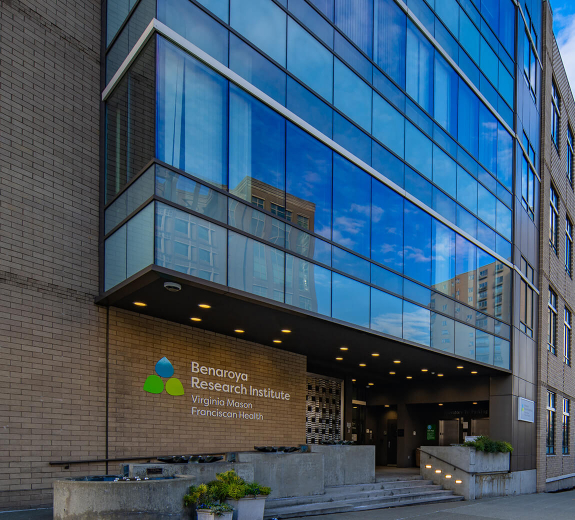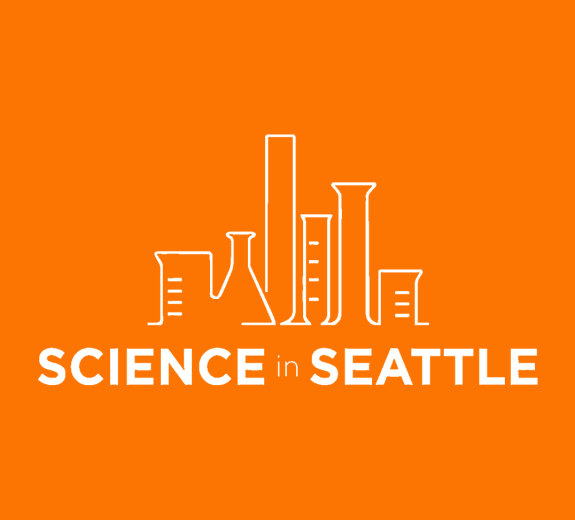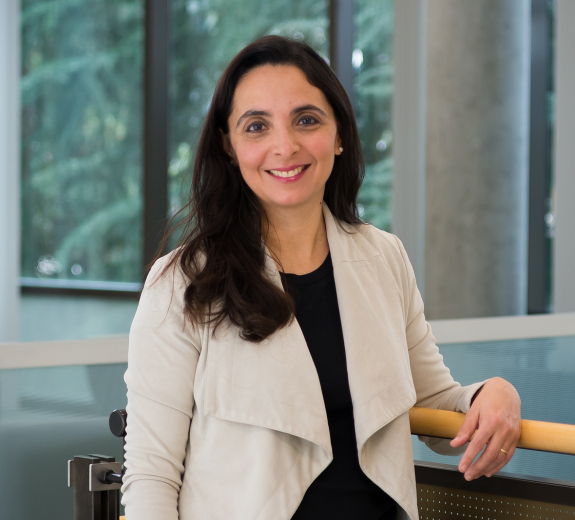Illustrates better understanding of cellular mechanisms involved in viral resistance; screening method used can be applied to other dangerous pathogens
Discoveries from the Benaroya Research Institute at Virginia Mason (BRI) have identified a new cellular protection pathway that targets a common vulnerability in several different pandemic viruses, and collaborators at Case Western Reserve University, Boston University School of Medicine and MRI Global have shown that this pathway can protect cells from infection by Ebola virus and coronaviruses, like SARS-CoV-2. Published today in Science, these new findings provide a better understanding of cellular mechanisms involved in viral resistance that can inform future treatments and therapies for viral infectious diseases.
The research illuminates a completely new role for the two genes identified and a unique approach to inhibiting virus fusion and entry into human cells—getting us one step closer to the next generation of antiviral therapies. Researchers used a transposon-mediated gene-activation screen to search for new genes that can prevent infection by Ebola virus. This new screening strategy—that serves as a blueprint for uncovering resistance mechanism against other dangerous pathogens— found that the gene MHC class II transactivator (CIITA) induces resistance in human cell lines by activating the expression of a second gene, CD74. One form of CD74, known as p41, disrupts the processing of proteins on the coat of the Ebola virus protein by cellular proteases called Cathepsins. This prevents entry of the virus into the cell and infection. CD74 p41 also blocked the Cathepsin-dependent entry pathway of coronaviruses, including SARS-CoV-2.
"Uncovering these new cellular protection pathways is incredibly important for understanding how we disrupt or change the virus infection cycle to elicit better protection against viruses like Ebola or SARS-CoV-2." said Adam Lacy-Hulbert, PhD, Principal Investigator, BRI and lead author on the study. "And our new strategy helps us find mechanisms that have eluded conventional genetic screens."
The findings illustrate a new role for genes previously thought to be involved in more conventional T cell and B cell mediated immune responses. For example, CIITA was understood as important for communication between immune cells, but it had not previously been seen as a way for cells to defend themselves against viruses.
"As a virologist, I am excited not just about what this means for Ebola virus, but about the broader implications for other viruses," said Anna Bruchez, PhD, Instructor in Pathology, Case Western Reserve University and co-author on the study. "Many viruses, including coronaviruses, use cathepsin proteases to help them infect cells. Fortunately, when SARS-CoV-2 emerged, I had recently moved to Case Western, and was able to use their specialized BSL3 laboratories to show the CD74 pathway also blocked endosomal entry by this virus. Thus, this anti-viral mechanism has evolved to work against many different viruses."
"We really don’t understand the cellular mechanisms that block viral infections which has limited our ability to effectively respond to pandemics, including this year’s coronavirus," said Lynda M. Stuart, MD, PhD, Deputy Director, Bill & Melinda Gates Foundation, BRI Affiliate Investigator and co-author on the study. "We really need therapies that can block all viruses, including unknown future pathogens. To do that we need to find common pathways that viruses target and then develop approaches to block those vulnerabilities. Our work demonstrates one way in which cells can be modified to do this, and we hope that our insights will open up new avenues for scientists developing therapies and interventions to treat viral infectious diseases that impact millions of lives around the world."
For more information on this discovery and its implications to better understand viral resistance, see the paper: MHC class II transactivator CIITA induces cell resistance to Ebola virus and SARS Coronavirus in Science.
For more information on the Benaroya Research Institute at Virginia Mason, visit www.benaroyaresearch.org
###
ABOUT CASE WESTERN RESERVE UNIVERSITY
Case Western Reserve University is one of the country's leading private research institutions. Located in Cleveland, we offer a unique combination of forward-thinking educational opportunities in an inspiring cultural setting. Our leading-edge faculty engage in teaching and research in a collaborative, hands-on environment. Our nationally recognized programs include arts and sciences, dental medicine, engineering, law, management, medicine, nursing and social work. About 5,100 undergraduate and 6,700 graduate students comprise our student body. Visit case.edu to see how Case Western Reserve thinks beyond the possible.
ABOUT MRI GLOBAL
MRIGlobal addresses some of the world’s greatest threats and challenges. Founded in 1944 as an independent, non-profit organization, we perform contract research for government, industry, and academia. Our customized solutions in national security and defense and health include research and development capabilities in clinical research support, infectious disease and biological threat agent detection, global biological engagement, in vitro diagnostics, and laboratory management and operations. MRIGlobal is one of two partners in the Alliance for Sustainable Energy, LLC, which manages and operates the National Renewable Energy Laboratory (NREL) in Golden, Colorado, for the U.S. Department of Energy. For more information, visit mriglobal.org






